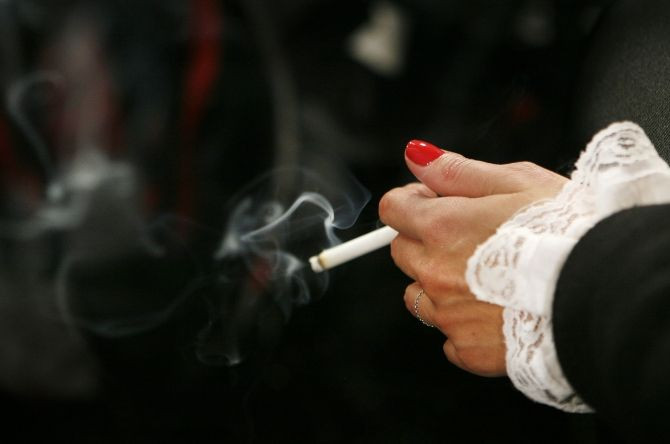Troubled Childhood Tied to Smoking as an Adult for Women, Not Men

Childhood adversity may lead women to start smoking later in life, a new study said.
Adverse childhood experiences (ACEs) can be detrimental to health. Many studies have shown that children who have had a troubled childhood are at increased risk of developing many diseases. Researchers in the present study say that women are more likely to cope with the psychological stress by smoking tobacco while men might have other coping mechanisms.
"Since ACEs increase the risk of psychological distress for both men and women, it seemed intuitive that an individual experiencing an ACE will be more likely to be a tobacco cigarette smoker. However, in our study, ACEs only to increased the risk of smoking among women. Given this, men who have experienced childhood trauma may have different coping mechanisms than their female counterparts," said Dr Tara Strine, lead author of the study.
Data from more than 7,200 Kaiser-Permanente members in San Diego California was used in the present study. About half of the study participants were women.
Researchers found that women, who were abused physically or emotionally, were 1.4 times more likely to smoke. Risk of smoking doubled if either of the parents were in prison.
Medical Daily had reported a study yesterday that said that women who were abused during childhood were more likely to suffer from diabetes and heart disease in middle age. The body's immune system reacts to childhood trauma as it does to physical injury causing chronic inflammation.
Recent reports say that a traumatic childhood alters the brain leading to more risky behavior in later life.
"Our results show that, among women, an underlying mechanism that links ACEs to adult smoking is psychological distress, particularly among those who have suffered emotional or physical abuse or physical neglect as a child. These findings suggest that current smoking cessation campaigns and strategies may benefit from understanding the potential relationship between childhood trauma and subsequent psychological distress on the role of smoking particularly in women," Dr Strine said.
The study was published in Substance Abuse Treatment, Prevention, and Policy.
Published by Medicaldaily.com



























